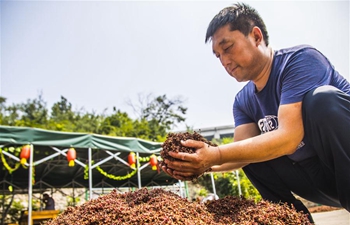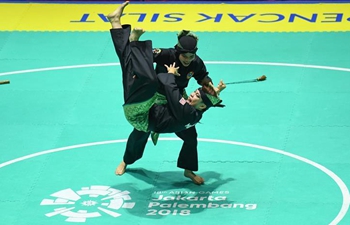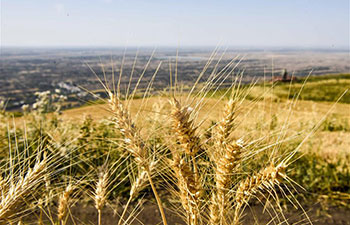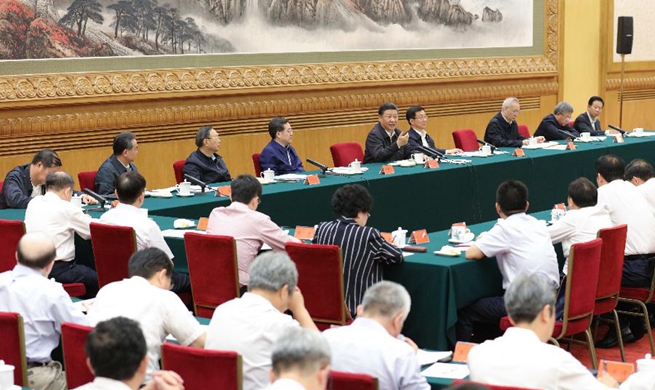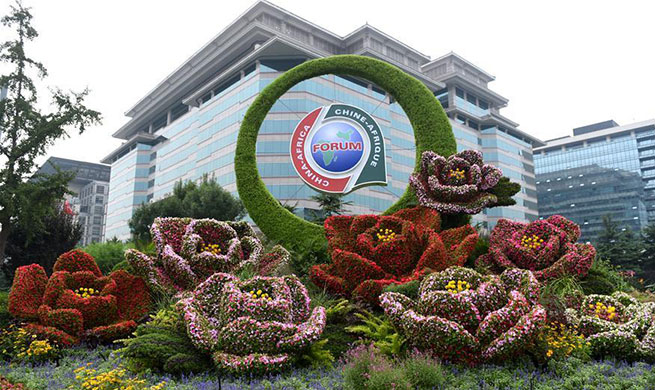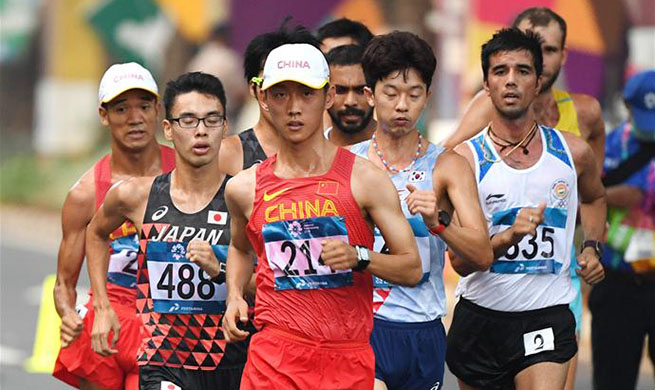BEIJING, Aug. 29 (Xinhua) -- Professor Chen Yuanmeng has taught Kiswahili, one of the major languages in East Africa, at the Communication University of China for over 50 years.
As one of the most senior Kiswahili teachers in the university, Chen has seen major changes over the years and the importance of promoting communication between China and African countries.
Kiswahili is one of the widely spoken languages in East Africa. It is used in countries including Tanzania, Kenya, Zambia, Rwanda and Mozambique.
"Kiswahili is our golden key to understanding Africa," said 76-year-old Chen, "We can only begin to understand each other when we speak the same language."
Chen started teaching Kiswahili in 1966, six years after the major was set up in the university, the first of its kind in China.
"We didn't even have textbooks at the very beginning," Chen recalled.
"We had to use radio and newspapers as learning materials back then," said Chen,"It wasn't until 1971 that the first Kiswahili-Chinese dictionary was published."
Thirty-six-year-old Hu Bo, who graduated in 2004, said that when he attended school in early 2000, there were only dozens of copies of the Kiswahili-Chinese dictionary across the country. "There were 24 students in my class," Hu said, "Professor Chen bought a dictionary for each one of us. The dictionary was like a treasure for us back then."
Like many of his alumni, Hu went to Africa after graduation. After working in several different African countries for a few years, he built his own fertilizer import and export business there.
"Many other graduates become interpreters or diplomats, contributing to the friendship between China and Africa as well," Hu said.
During 50 years of teaching, Chen has edited textbooks and translated several Kiswahili books into Chinese.
His student Li Kunruonan has followed in his footsteps and became a teacher at the university after graduation.
"I chose to become a teacher because I think there are still many Chinese people who don't know about Africa," said Li, "I want to help more people learn about the real Africa."
Also working as a translator, Li has been translating novels in Kiswahili into Chinese. "I wish I could help Chinese people in Africa learn Kiswahili and about African culture, while also helping African people learn some Chinese and understand more about China," said Li.
Han Mei, a graduate from the early 1990s, has been working as a reporter at the West African center for China Radio International, telling the Chinese story to African people.
Han is looking forward to the upcoming Forum on China-Africa Cooperation in early September in Beijing. She said that many African countries have a strong will to develop and are looking forward to learning from China's experience.
"Wenzhou is my first home, and Africa is like my second home," said Chen.
"I hope more young people can join us and contribute to the development and cooperation between China and African countries," Chen said.




